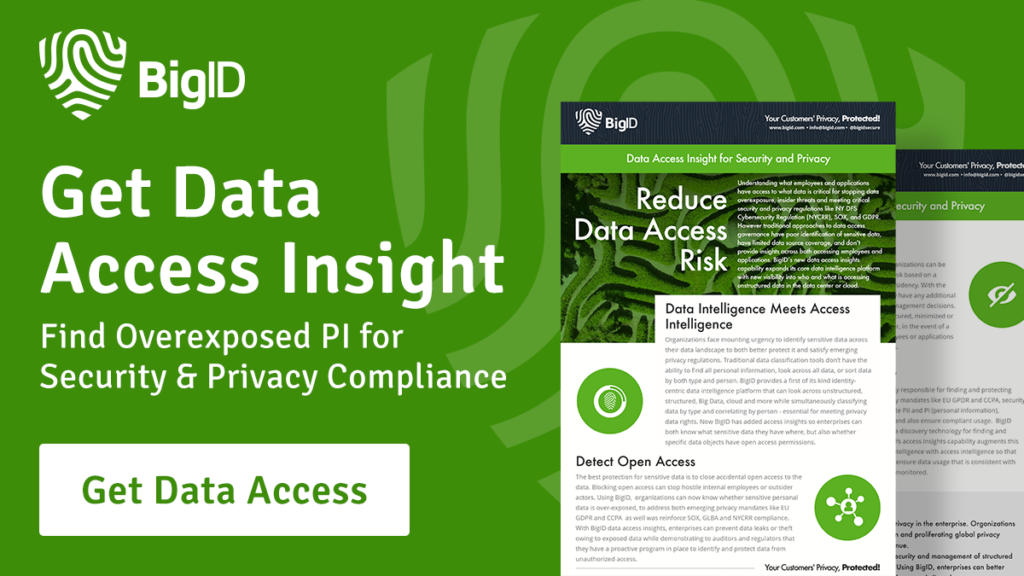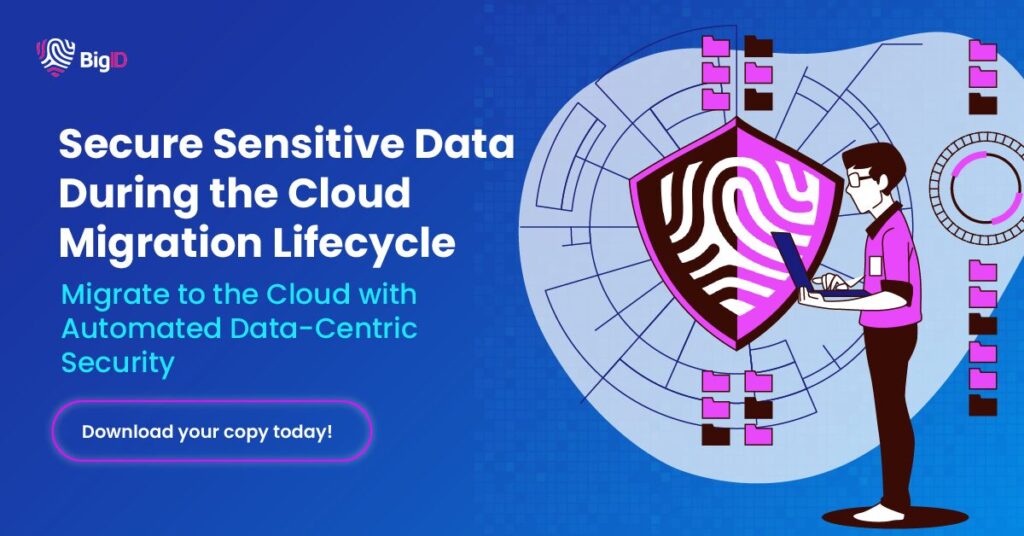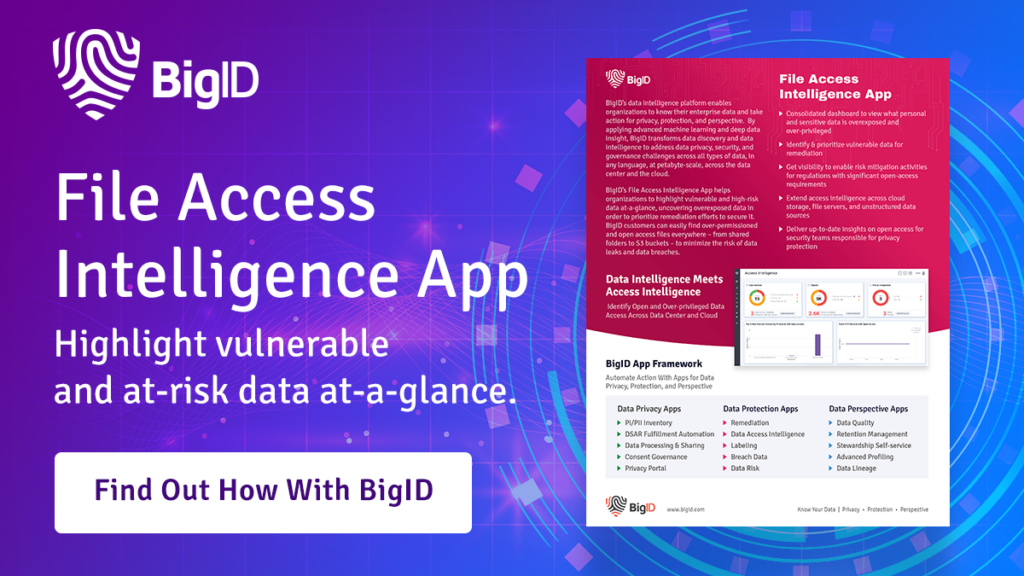The Comprehensive Guide to File Security: Safeguarding Sensitive Data
In today’s digital age, file security is paramount to safeguarding sensitive data from breaches and unauthorized access. This article delves into the intricacies of file security, its connection to access controls, the role of access intelligence, and best practices to ensure robust protection.
Understanding File Security
What is File Security?
File security encompasses the measures and protocols implemented to protect digital files from unauthorized access, alteration, or destruction. These files can range from confidential business documents and personal information to financial records and intellectual property.
How Does File Security Work?
File security operates through a combination of encryption, access controls, and monitoring systems. Encryption scrambles data so that only authorized parties with the correct decryption key can access it. Access controls determine who can view or edit files, while monitoring systems track and log access to detect any suspicious activity.
The Importance of File Security
Protecting Sensitive Data
Sensitive data, such as personal identification information (PII), financial records, and proprietary business information, is a prime target for cybercriminals. A breach can lead to significant financial losses, legal repercussions, and damage to an organization’s reputation.
Compliance with Regulations
Many industries are subject to strict data protection regulations, such as GDPR, HIPAA, and CCPA. Effective file security measures are essential to comply with these regulations and avoid hefty fines and legal consequences.

Connection to Access Controls
What are Access Controls?
Access controls are mechanisms that restrict who can view, edit, or share files. They are a fundamental aspect of file security, ensuring that only authorized individuals have access to sensitive data.
Types of Access Controls
- Role-Based Access Control (RBAC): Assigns permissions based on an individual’s role within the organization.
- Discretionary Access Control (DAC): The data owner decides who has access to specific files.
- Mandatory Access Control (MAC): Access is determined by a central authority based on multiple criteria, such as security clearance levels.
Enhancing Security with Access Intelligence
What is Access Intelligence?
Access intelligence involves analyzing access patterns to identify anomalies and potential security threats. It provides insights into who is accessing files, when, and from where, helping to detect and mitigate unauthorized access.
Benefits of Access Intelligence
- Proactive Threat Detection: Identifies suspicious activities before they escalate into breaches.
- Improved Compliance: Ensures adherence to access policies and regulatory requirements.
- Enhanced Decision-Making: Provides data-driven insights for refining access controls and security protocols.
Best Practices for Effective File Security
1. Implement Strong Encryption
Encrypt files both at rest and in transit to prevent unauthorized access. Use advanced encryption standards (AES) to ensure data remains secure.
2.Enforce Multi-Factor Authentication (MFA)
Require multiple forms of verification before granting access to sensitive files. MFA adds an extra layer of security, making it harder for unauthorized users to gain access.
3.Regularly Update Access Controls
Periodically review and update access controls to reflect changes in personnel or roles. Ensure that only necessary individuals have access to sensitive data.
4.Conduct Security Audits
Perform regular security audits to identify vulnerabilities and assess the effectiveness of file security measures. Use the findings to strengthen your security posture.
5.Train Employees
Educate employees about the importance of file security and best practices for handling sensitive data. Regular training helps prevent human errors that can lead to breaches.
Real-World Use Cases
Financial Institutions
Banks and financial institutions handle vast amounts of sensitive customer data. Implementing robust file security measures, such as encryption and access controls, helps protect against data breaches and comply with regulatory requirements.
Healthcare Organizations
Healthcare providers manage sensitive patient information that must be safeguarded under HIPAA regulations. File security measures ensure the confidentiality and integrity of medical records.
Corporate Enterprises
Large corporations store proprietary business information and intellectual property. Effective file security prevents unauthorized access and safeguards competitive advantages.
Protecting Sensitive Data On-Premise and in the Cloud
As organizations increasingly adopt hybrid environments, the need to secure sensitive data both on-premise and in the cloud becomes crucial. Each environment presents unique challenges and requires tailored security measures.
On-Premise File Security
Physical Security
Ensuring the physical security of servers and storage devices is the first line of defense. This includes:
- Secured Facilities: Limit access to data centers and server rooms to authorized personnel only.
- Surveillance Systems: Install CCTV cameras and other monitoring systems to detect and prevent unauthorized physical access.
- Environmental Controls: Maintain optimal conditions (e.g., temperature, humidity) to protect hardware from damage.
Network Security
Securing the network infrastructure is vital for protecting on-premise data:
Firewalls and Intrusion Detection Systems (IDS): Implement firewalls and IDS to monitor and block malicious traffic.
Virtual Private Networks (VPNs): Use VPNs for secure remote access to on-premise resources.
Segmentation: Segment the network to limit the spread of potential breaches.
Access Controls
Robust access controls are essential for on-premise file security:
Least Privilege Principle: Grant users the minimum level of access necessary for their roles.
Audit Trails: Maintain detailed logs of file access and modifications to track user activity and identify anomalies.
Cloud File Security
Data Encryption
Encrypting data stored in the cloud is critical to protecting it from unauthorized access:
- Client-Side Encryption: Encrypt data before uploading it to the cloud.
- Server-Side Encryption: Utilize cloud provider encryption services to secure data at rest.
Access Management
Managing access to cloud data requires specific strategies:
- Identity and Access Management (IAM): Use IAM tools to control who can access cloud resources.
- Multi-Factor Authentication (MFA): Implement MFA to add an extra layer of security for accessing cloud services.
- Federated Identity Management: Enable single sign-on (SSO) across multiple cloud services for streamlined and secure access.
Cloud Security Posture Management (CSPM)
CSPM tools help maintain secure configurations in the cloud:
- Continuous Monitoring: Regularly scan for misconfigurations and vulnerabilities in cloud environments.
- Compliance Checks: Ensure cloud resources comply with industry regulations and best practices.
- Automated Remediation: Automatically correct identified issues to maintain a secure cloud posture.

Hybrid Security Strategies
For organizations operating in both on-premise and cloud environments, a hybrid security approach is necessary:
- Unified Security Policies: Develop and enforce consistent security policies across both environments.
- Integrated Security Solutions: Use security tools that provide visibility and control over both on-premise and cloud data.
- Data Classification: Classify data based on sensitivity and apply appropriate security measures regardless of where it is stored.
Real-World Example: Hybrid File Security in Action
Consider a multinational corporation that stores financial records on-premise and uses cloud services for collaboration and data analytics:
On-Premise: The company employs strict access controls, network segmentation, and physical security measures to protect its on-premise data centers.
Cloud: It uses server-side encryption and IAM tools to secure cloud-stored data. CSPM tools continuously monitor the cloud environment for compliance and security.
Hybrid: Unified security policies ensure that data classification and protection standards are consistent across both environments, providing seamless and comprehensive security coverage.
Protecting sensitive data in a hybrid environment requires a comprehensive approach that addresses the unique challenges of both on-premise and cloud security. By implementing robust encryption, access controls, and continuous monitoring, organizations can ensure the safety of their data regardless of where it resides.
BigID’s Approach to File Security
File security is a critical component of an organization’s overall security strategy. Investing in file security is not just a technical necessity but a strategic imperative that safeguards an organization’s reputation and trustworthiness in the digital age. BigID is the industry leading platform for data privacy, security, compliance, and AI data management that leverages advanced AI and deep discovery for greater visibility and context into all of an organization’s enterprise data.
With BigID organizations can:
- Know Your Data: Automatically classify, categorize, tag, and label sensitive data with unmatched accuracy, granularity, and scale.
- Improve Data Security Posture: Proactively prioritize and target data risks, expedite SecOps, and automate DSPM.
- Remediate Data Your Way: Centrally manage data remediation – delegate to stakeholders, open tickets, or make API calls across your stack.
- Enable Zero Trust: Reduce over-privileged access & overexposed data, and streamline access rights management to enable zero trust.
- Mitigate Insider Risk: Proactively monitor, detect, and respond to unauthorized internal exposure, use, and suspicious activity around sensitive data.
- Achieve Compliance: Automatically meet security, privacy, and AI compliance and frameworks globally, wherever data resides.
To see how BigID can help your organization start implementing more reliable security for all your enterprise data— book a 1:1 demo with our experts today.


